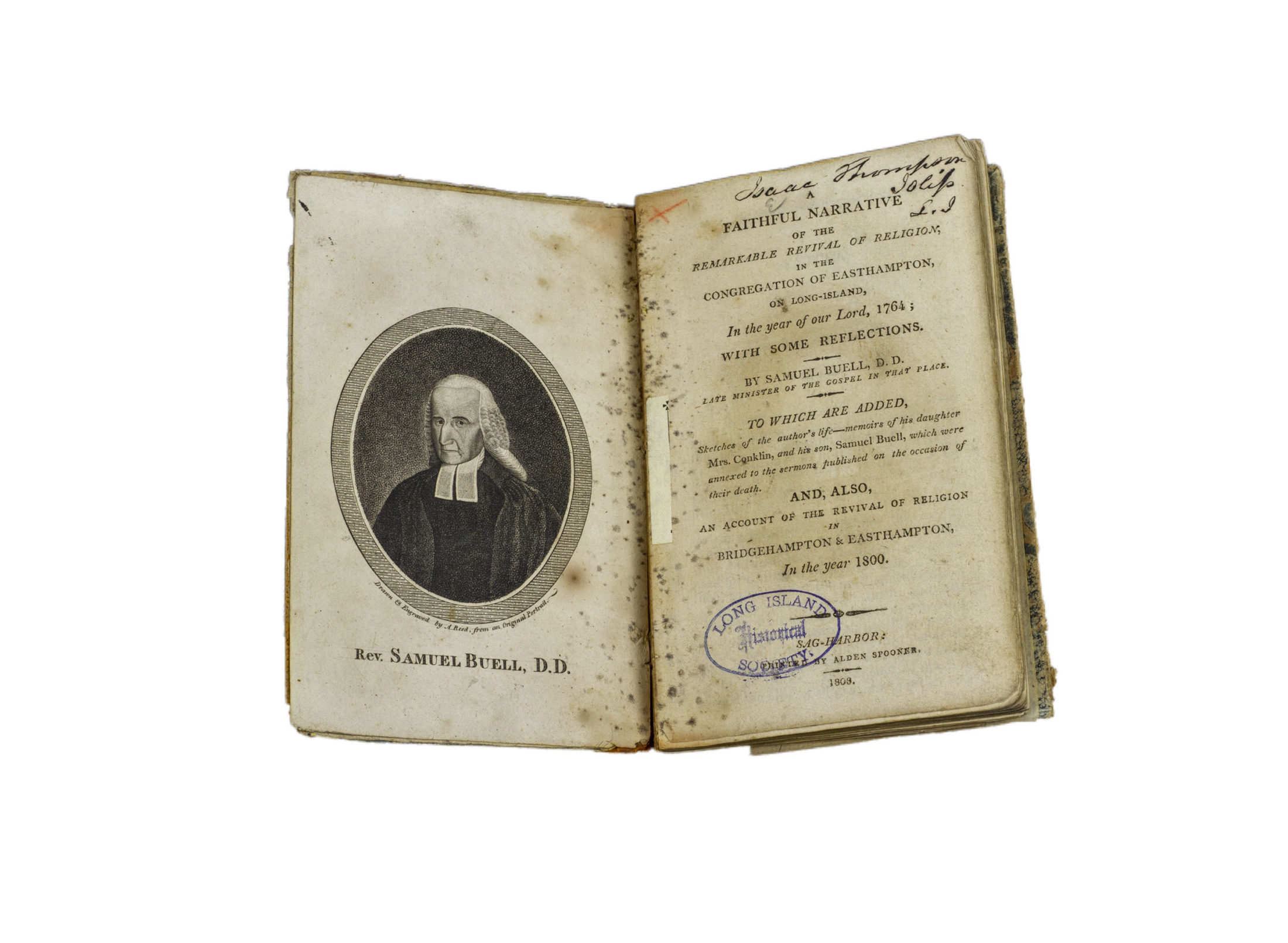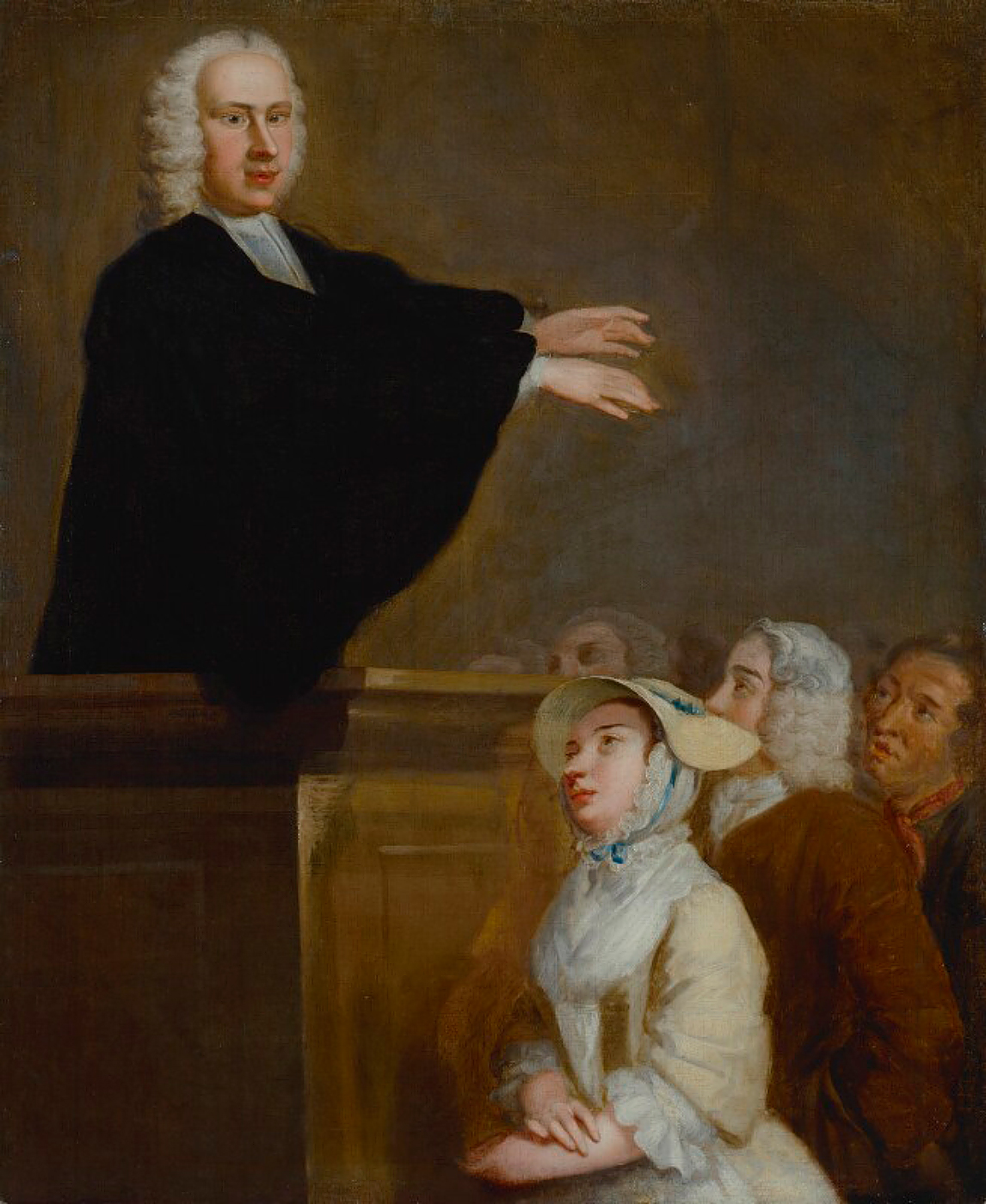“A remarkable revival of religion”
Samuel Buell and the Great Awakening in America
Samuel Buell’s deeply lined faced hints at the weight of the spiritual crisis he witnessed throughout his life. His personal religious journey provides a window onto what life was like in colonial America during and after the Great Awakening, a swell of religious enthusiasm that spread from upstate New York across the country beginning in the 1720s.
Early biographical accounts of Buell’s life indicate that he was not particularly devout until after he turned seventeen in 1733, when for several months, he “was led to the most affecting discoveries of the evil of sin, the plague and total depravity of his heart, the utter insufficiency of his own righteousness.” Sudden onslaughts of spiritual crises were common during the Great Awakening and prompted thousands across America to rethink their faith.

A Faithful Narrative of the Remarkable Revival of Religion, in the Congregation of Easthampton, on Long-Island, 1809
Samuel Buell
Vault B8615f 1809
Brooklyn Historical Society
The fiery teachings of a preacher undoubtedly inspired young Buell’s exploration of his “depravity and sins.” Of those religious figures, Englishman George Whitefield was the most revered. Reacting to what they perceived to be the decline in religious adherence throughout the eighteenth-century Atlantic World, evangelical preachers like Whitefield preached directly to the people, traveling from town to town. Ministering to large crowds in churches and often in open fields, these preachers encouraged laypeople to seek their rebirth into the faith to avoid eternal damnation. Like thousands of other Americans in the eighteenth century, Buell’s acceptance of these teachings changed his life.

George Whitefield, circa 1742
John Wollaston
NPG 131
National Portrait Gallery, London
Buell life’s mission became promoting “the salvation of souls…[and to] serve God in the gospel of his son.” He graduated from Yale College in 1741 and became an evangelical preacher himself in 1743. Just three years later, he took the position of pastor at East Hampton, where he ministered for nearly 50 years.